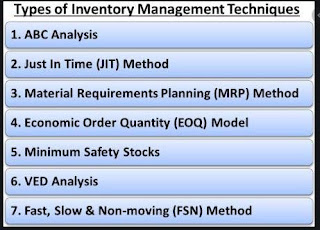Web-Enabled Online Treasury Information System OTIS
-Dr. Lalit Kumar
The Electronic Payment System (EPS) is
implemented in Government with the support of the National Informatics Centre (NIC)
and Treasuries and Accounts Department. The web-enabled various modules are
incorporated one by one to computerize the operations of the treasury of a state. The
Government of Haryana implemented various modules for e-Governance including Online
Budgeting, e-Billing, e-Salary, e-GRAS, e-Pension, e-Stocking, Web-enabled
OTIS, NPS, RD, CCD, PLA, etc.
A. Online Budget:
Financial Management starts from the estimation of receipts and expenses in the upcoming financial year. For smooth
functioning of Budget Estimation, firstly it is required to prepare and submit
the Budget Estimates online with the help of module of Online Budgeting. In
Haryana, the Online Budget Allocation, Monitoring, and Analysis System is used
to prepare and allocate the Budget.
B. e-Salary, e-Billing, and e-Pension:
The salaries are the most important
component of the payments of the treasuries and with the e-Salary module, the
function is streamlined effectively. After the retirement of an employee, the
pension is processed with the help of the e-Pension module. The e-Billing module in
Haryana is nowadays used for processing payments through Electronic Payment
System (EPS) mode to employees and persons other than employees. All types of
Bills/Cheques/Refund Çlaims etc. are processed in the modules for transparency
and e-Governance in the State Governments.
The EPS pay orders are processed by the
Treasuries, with the help of Drawing and Disbursing Officers (DDOs), in case
any EPS pay order is unpaid, it is canceled from the treasury and the fresh bill
is required to be submitted in the e-Billing system.
Closing of Bank Accounts and Using only UCP for Payments
In order to stop parking of funds, the
Government decided to close bank accounts that are opened in the
name/designation of the Officers in the banks for Government transactions. A
meeting of the Public Accounts Committee (PAC) in Haryana, on 3rd
December 2013 made serious observations regarding parking of funds outside the
Government accounts. Such accounts were decided to close immediately or
permission is taken from the Finance Department. In case, accounts are closed,
the amount lying in the bank accounts be deposited in state treasuries without
any delay.
The directions of the Government state that
once a bill/cheque/refund order is presented in the e-Billing system, it makes the
payment directly in the account of the payee and the earlier irregular practices of
transfer of government funds in current or saving account of banks by the
DDOs/HoDs needs to be strictly curbed except exceptional circumstances, where
the procedure of operating bank account cannot be done away with.
C. e-Post Sanctioning System
In May 2014 in Haryana, to streamline the
process of sanctioning various new posts, a module was added in the Integrated
Financial and Human Resource Management System (IFHRMS), known as the e-Post
Sanctioning System. The departments were directed first to enter the details
of sanctioned posts and working strength of each and every post of their
existing offices. The data was submitted and sent to the Finance Department and
no change is possible without the permission of the Finance Department.
Creation of posts or Shifting of Posts
For the creation of new posts or shifting of
posts within the department, the request can be processed from Establishment
Controlling Officer (ECO) to Establishment Controlling Authority (ECA).
Thereafter the approval may be sought from the Administrative Department. After
getting the approval, the Head of Department/BCA can send the demand of
creating new posts or shifting of posts, to the Finance Department.
In order to verify whether the new posts
are created or not, whether the posts are shifted from one office to another or
not? The DDOs can use the system to view the existing sanctioned posts and
their working strength in various offices. The system entry is a must to create
or abolish or shifting/transfer a post.
In case of any problem in the e-Post system,
the Officers may communicate at softprobl@gmail.com
or contact on the telephone numbers mentioned on the website of Online
Budgeting.
D. e-TDS Module in the e-Billing portal
To avoid the late fee/penalty i.e. Rs. 200
per day to be paid by the Drawing and Disbursing Officer, under section 234E of
Income Tax Act; the e-Billing module of Treasuries Department supports DDOs to
file the quarterly TDS return online.
*Copyright © 2021 Dr. Lalit Kumar. All rights reserved.
This article is written by Dr. Lalit Kumar Setia; a renowned author and trainer. He completed his Doctorate in Commerce from Kurukshetra University Kurukshetra and MBA in Information Technology from GJU, Hisar. He also wrote two books, 15 research papers, and organized more than 200 Training Courses during his working period since 2006 in Haryana Institute of Public Administration, Gurugram. The article was published on 25th September 2021 and last updated on 25th September 2021. The writer can be contacted on lalitkumarsetia@gmail.com
More Articles of Your Interest
https://drlalitsetia.blogspot.com/2021/09/how-does-unique-code-of-payee-work.html
https://drlalitsetia.blogspot.com/2021/09/pension-under-employees-provident-fund.html
https://leavesofprogress.blogspot.com/2021/09/parking-of-funds-and-personal-ledger.html



















